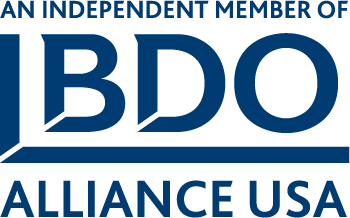A resident alien is generally taxed by the United States on worldwide income, just like a U.S. citizen. A U.S. citizen or resident alien who earns income in a foreign country may also be taxed on that income by the foreign host country, which can lead to double taxation. Several provisions are intended to help mitigate this situation, including the foreign earned income exclusion and the housing exclusion or deduction.
To qualify for these tax benefits, a taxpayer must:
- have a tax home in a foreign country,
- have foreign earned income, and
- be a U.S. citizen or a resident alien who meets the bona fide residence test or the physical presence test in a foreign country.
COVID-19 Travel Disruption Relief. The IRS has provided individuals and businesses with relief related to travel disruptions arising from the COVID-19 emergency. Under this relief, of U.S. presence that are presumed to arise from travel disruptions caused by the COVID-19 emergency will not be counted for purposes of determining U.S. tax residency and for purposes of determining whether an individual qualifies for tax treaty benefits for income from personal services performed in the United States.
Tax Home. A tax home is generally the taxpayer’s regular place of business or employment. If the individual has more than one regular place of business, then the tax home is located at his or her principal place of business or employment. If the individual has no principal place of business because of the nature of the business, or because the individual is not engaged in a trade or business, his or her tax home is at the individual’s regular place of abode. The location of the abode is based on where the taxpayer maintains their family, economic and personal ties.
Foreign country. A foreign country includes any territory under the sovereignty of a government other than that of the United States. This excludes Antarctica or U.S. territories such as Puerto Rico, Guam, the Commonwealth of the Northern Mariana Islands, the U.S. Virgin Islands, and American Samoa.
Bona Fide Residence Test. To meet this test, an individual must be a bona fide resident of a foreign country for an uninterrupted period that includes an entire tax year (e.g., January 1 through December 31, for calendar-year taxpayers). During the period of bona fide residence in a foreign country, the taxpayer can leave the country for brief or temporary trips back to the United States or elsewhere for vacation or business. However, to keep their status as a bona fide resident of a foreign country, they must have a clear intention of returning from such trips, without unreasonable delay, to their foreign residence or to a new bona fide residence in another foreign country.
The determination of a bona fide resident is based on all the facts and circumstances. The Courts have considered the length of stay plus additional factors such as:
- a taxpayer’s intention,
- establishment of a home in a foreign country,
- participation in social and cultural activities in a foreign community,
- nature and duration of employment, and
- reasons for temporary absences from the foreign home.
Physical Presence Test. To meet this test, the individual taxpayer must be physically present in the foreign country for at least 330 full days during 12 consecutive months. It can begin with any day of the month. A full day is a period of 24 consecutive hours, beginning at midnight. Additionally, an individual’s physical presence in the foreign country may be for any reason such as for business purposes or vacation time, or any combination of purposes.
Certain days are excluded and do not count as days spent in the foreign country if they are:
- spent on traveling to and from the United States over international waters (in transit),
- to recover from an illness,
- family emergencies,
- war or civil unrest, or
- under orders from superiors.
Because the foreign earned income exclusion and the housing exclusion or deduction is calculated on a daily basis, maximizing the number of days in a foreign country within the 12-month period and within the tax year maximizes your tax benefits.
Please call the Crosslin tax team to discuss your situation and to review your presence and days residing in a foreign country to determine your eligibility to qualify to take the foreign earned income exclusion and the housing exclusion or deduction, and to plan for the maximum tax benefit. We are here to help!







